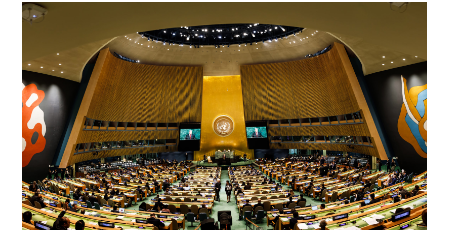International Court of Justice (ICJ): - It is also known as the World Court.
- It is the principal judicial organ of the United Nations (UN).
- It was established in June 1945 by Charter of the UN and began work in April 1946.
- The seat of the Court is at the Peace Palace in The Hague (Netherlands).
- Of the six principal organs of the UN, it is the only one not located in New York.
- The hearings of the ICJ are always public.
- Its official languages are French and English.
- The Court may entertain two types of cases:
- First, it can act as a dispute settlement body between two member States in what are called “contentious cases.” Such disputes may concern, in particular, land frontiers, maritime boundaries, territorial sovereignty, the non-use of force, violation of international humanitarian law, non-interference in the internal affairs of States and diplomatic relations.
- Second, it can accept requests to issue an advisory opinion on a legal question referred to it by aUN body or specialized agency. These opinions can clarify the ways in which such organizations may lawfully function or strengthen their authority in relation to their member States.
- The court\'s judgments in contentious cases are final and binding on the parties to a case, and without appeal.
|

